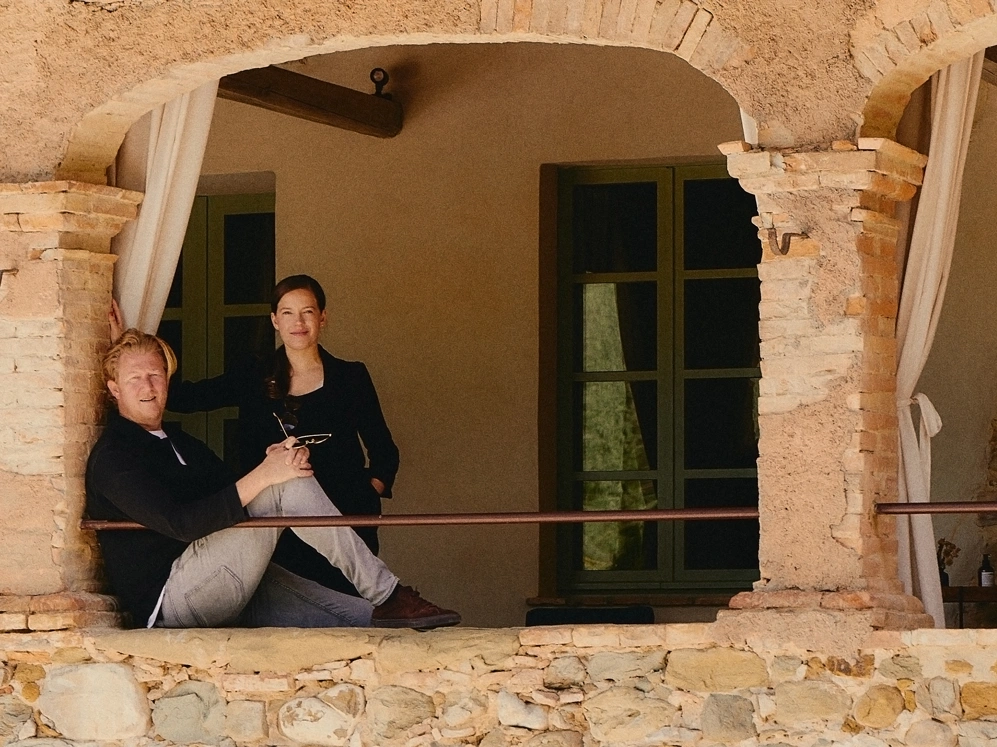
Words Allison Reiber DiLiegroImages Daniel Farò
“Fred always says that he feels the most at home here, where he grew up,” Lütjens tells us. And now, after a stroke of luck and years of hard work, they’ve left city life to make the Umbrian countryside their home.
At 14, Kubierschky moved from Germany to Treviso, near Venice, and began his education on the Italian language and the local ways. After his mother introduced him to the world of hospitality—she ran a hotel—he made his way into the business, eventually becoming Chief Concierge at a top hotel in Zurich. This is where he met the German-born Lütjens, who often found herself at his desk in her guest relations role. “We learned we are a good team, and it’s been working well ever since,” Kubierschky says. This seems to be the case: We spoke with the pair on their tenth anniversary together.
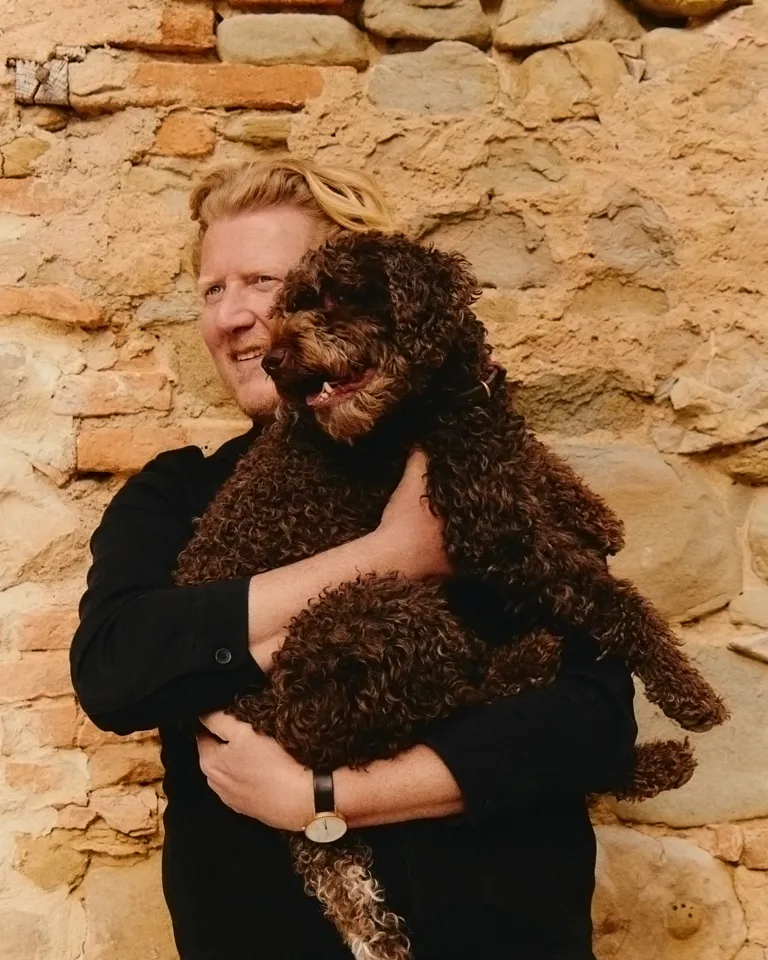
Fred and the couple’s happy hound Wilma
A room with a view: A courtyard scene at Vocabolo Moscatelli
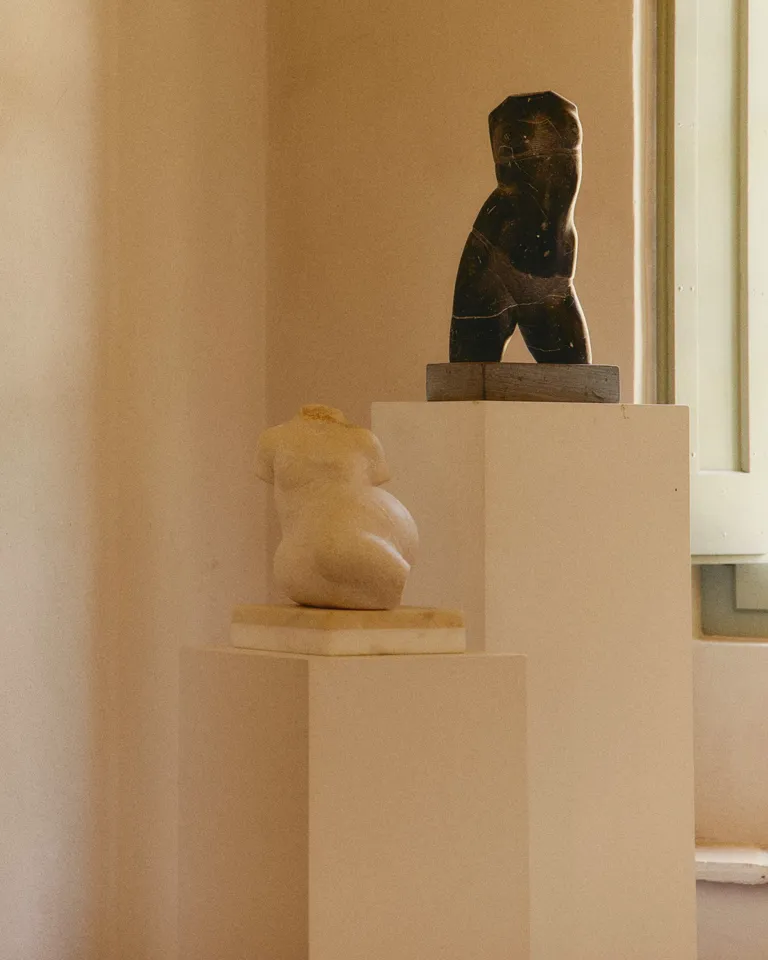
Local artists helped to create the Vocabolo mystique
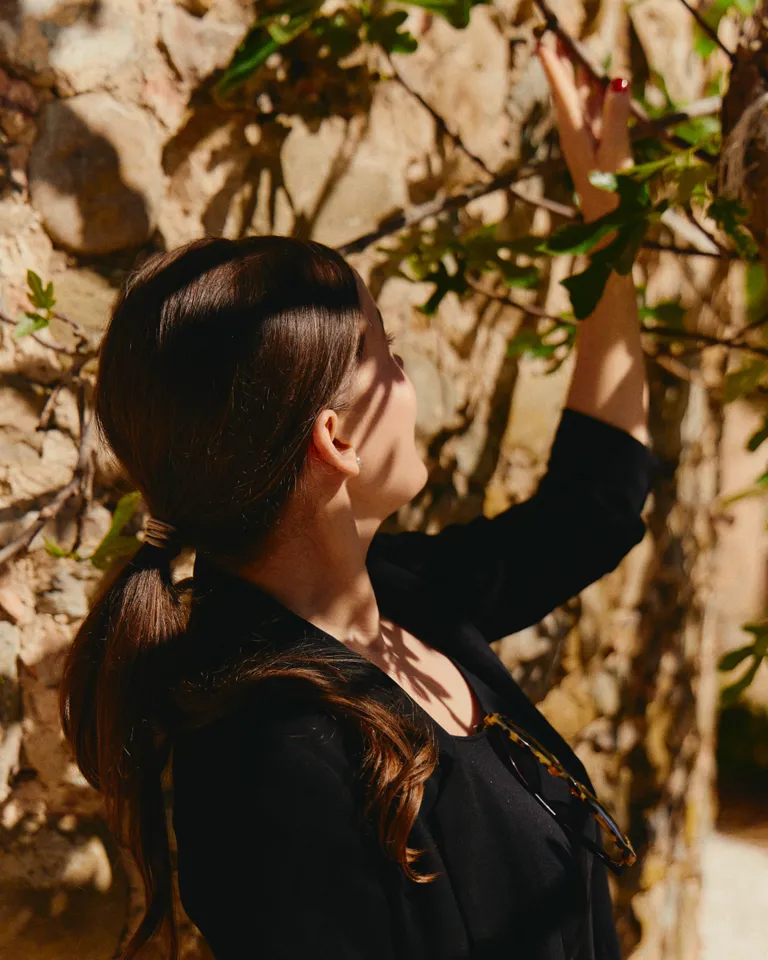
A moment of reflection for Cathi
Their journey with Vocabolo Moscatelli began fortuitously: Lütjens was working for an investor who was tipped off to the sale of a 12th-century monastery in the Umbrian countryside. As he had no plans to operate a hotel himself, he offered Kubierschky and Lütjens the opportunity to transform the property into something extraordinary. “It is a dream come true,” Kubierschky acknowledges, “but dreams also take work.”
As we stroll through the grounds on a sunny morning, Kubierschky and Lütjens point out a few of their favorite details. There’s the free-spirited garden, designed to always have something in bloom, no matter the season. We walk beneath a wrought-iron pergola towards the forgotten fruit orchard, where esoteric little saplings will one day bear fruit. And in this way, it becomes clear that Kubierschky and Lütjens have planted all the right seeds: Now it’s time to let them grow.
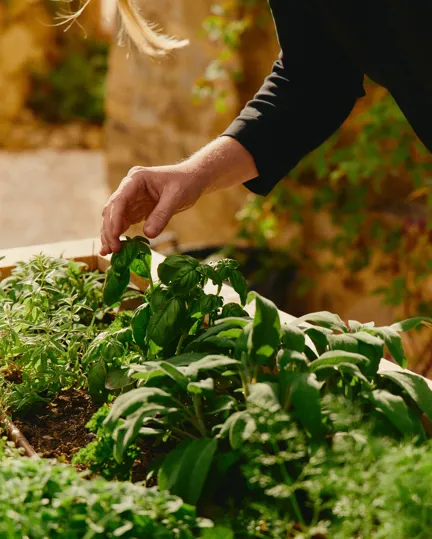
Vocabolo Moscatelli’s on-site aromatic garden
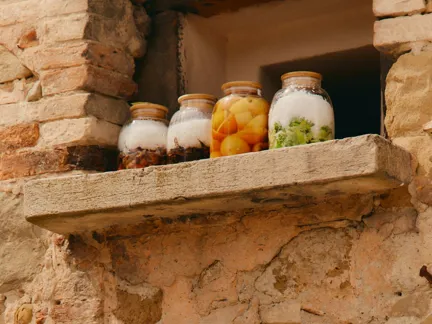
Local preserves flavor the setting
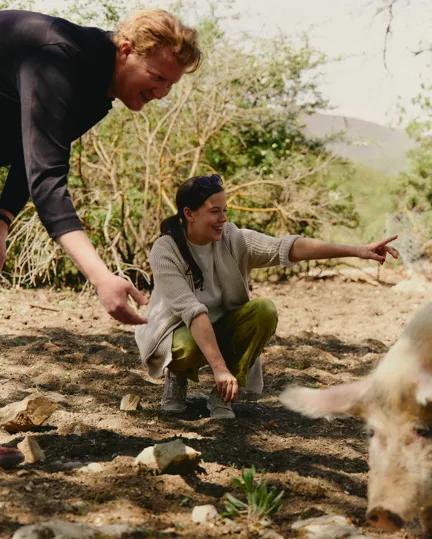
Authentic Italy: A visit to a neighboring pig farm
Frederik Kubierschky: I must say, it’s not all our achievement. It’s also Jacopo Venerosi Pesciolini, our architect. He is extremely dedicated and a very good listener, and he really got us. Before he suggested any partners, he did a month and a half of research on local makers. As a concierge, I’m a natural networker, so once I had a foot in the door, I started to build upon the connections. We worked with some incredible studios like Cotto Etrusco, Endiadi Ceramics, and Lispi & Co, who just opened a showroom in Milan and is working with some really interesting and important Italian designers.
Catharina Lütjens: And we stay in contact with them now. Cotto Etrusco, the workshop that made our tiles, will reach out to say, “We have clients coming to visit our showroom,” which is in Montone, just seven kilometers from here, “and we would love for them to stay with you so they can see some of our work.” In that way, it’s the perfect match.
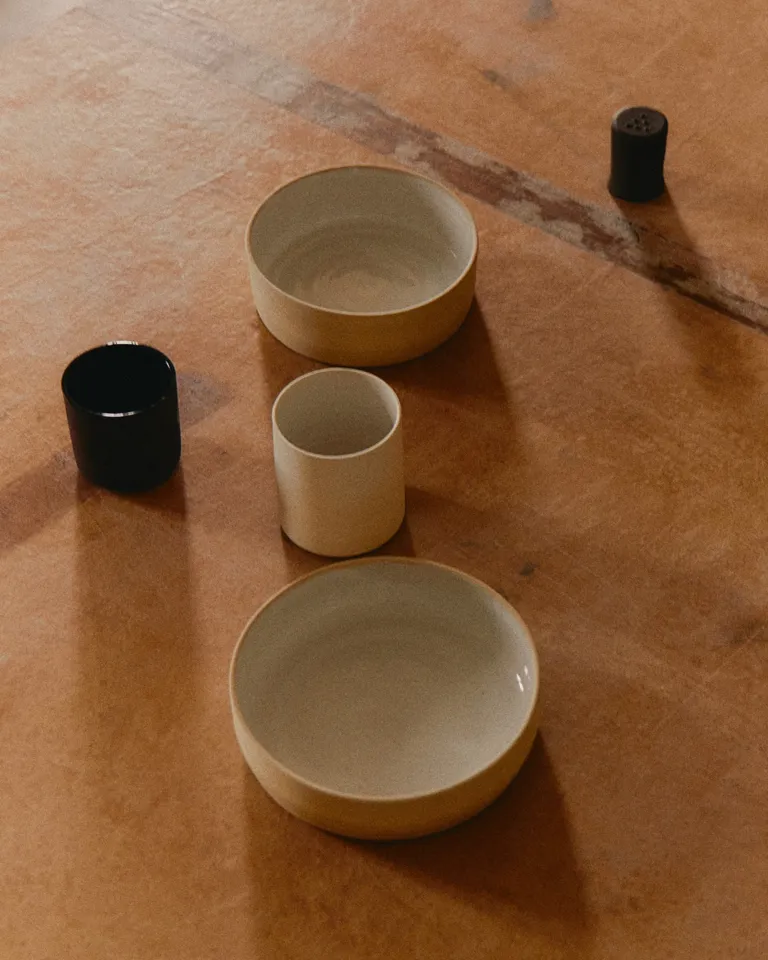
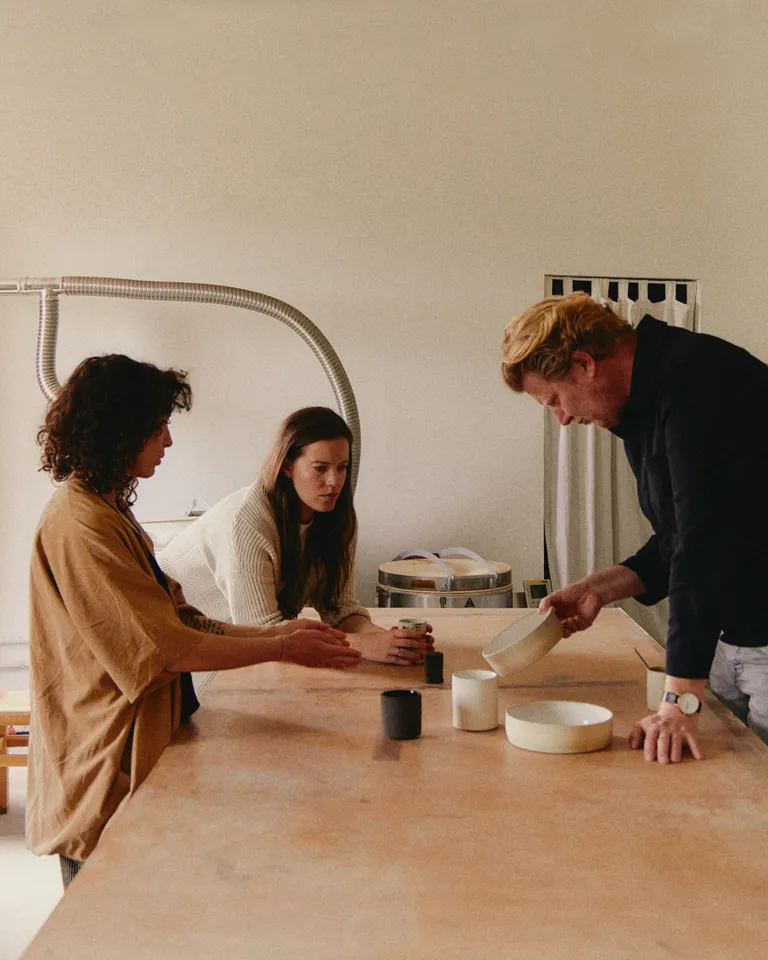
Shape and form: Fred and Cathi discuss new pieces at Endiadi Ceramics
The creative process at Endiadi Ceramics
FK: Having lived in a few different countries, I’m lucky to have a good understanding of people, and I think that understanding each other is key. Of course, speaking the language helps, but what we try to do here is make connections—with the community and with our guests. They’re not just coming here for a room and some recommendations. We want to get to know people and really appreciate them.
CL: It was different, and definitely outside of my comfort zone at first, but I love it. It was always our dream to do something like this together. And it could have been anywhere. Italy is home for Fred. And I’m happy that we’re coming back together now. New challenges are good.
FK: It’s also interesting to be in a place where we are the “happening.” Here in the countryside, everything is different. The north of Umbria is an agricultural land—it’s not very touristy. The people wake up at 5:00 am and go to bed at 9:00 pm. But it is a beautiful process, coming to understand it.
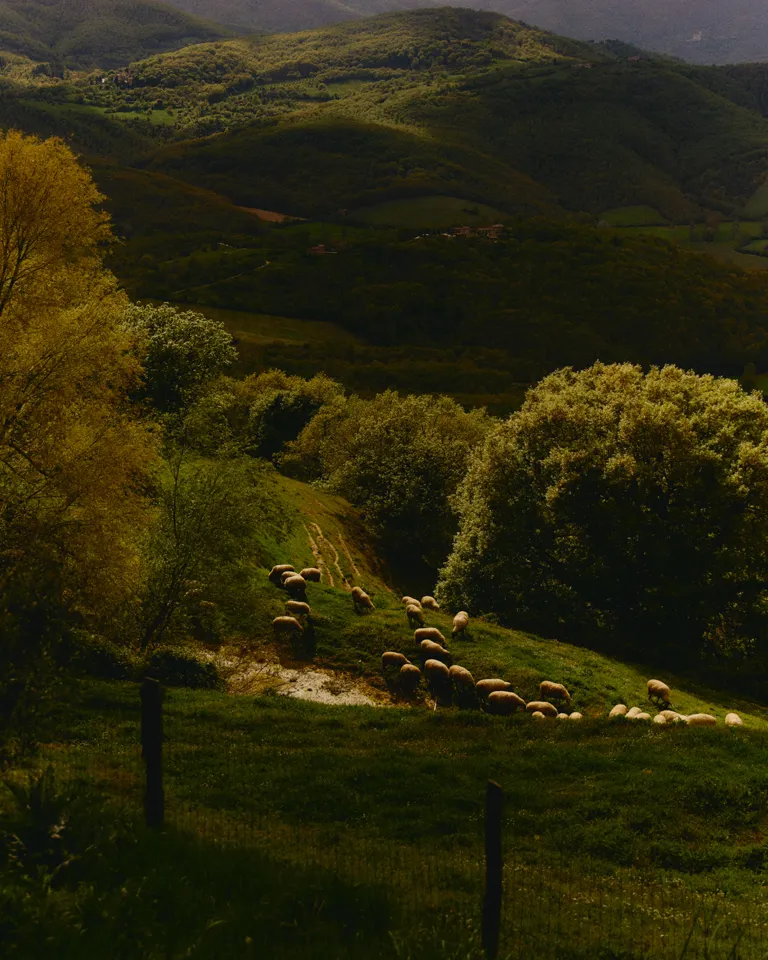
Frederik Kubierschky
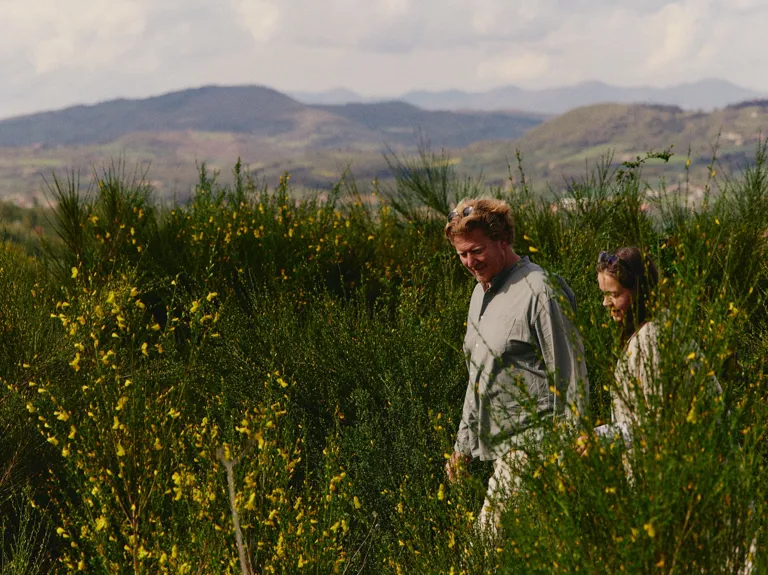
Fred and Cathi often walk with their dog Wilma, a natural truffle-hunter
FK: I’ve always felt that way here. Next to the street here is a river, and when we first arrived it was raining for weeks. There was flooding in the village, and without even asking they came to check on me. The community is small, but if you need something, they are there like that. It feels like family.
CL: We’ve been happy to be able to host them as well. A few locals came, and then they told their friends, who told more friends. Now, they are giving us the chance to be their host and show what we have created here. Last year, for our opening, the farmer who owns the land around our property planted sunflowers around the hotel—and he did the same this year. And that felt like a sign—we are a part of the community. That has been really special for me.
FK: There is not much of that. We love to go on beautiful walks in the oak forest with our dog Wilma, and we even go truffle hunting from time to time. Umbria is the only region in Italy where you can get four types of prestigious truffles. And the woods are full of mushrooms in the season. People come with their baskets and fill them up in the forest just five minutes away from here.
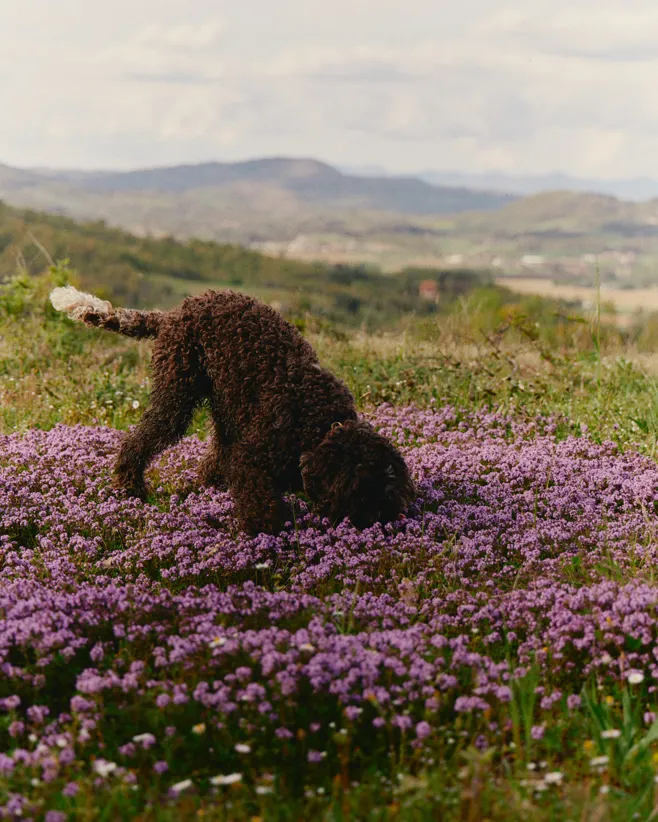
Frederik Kubierschky

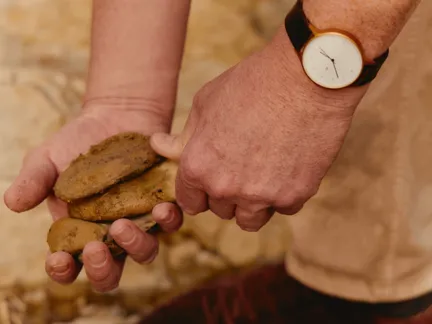
FK: Oh, plenty of things—like their love for craftsmanship or good ingredients: their wild boar, fresh vegetables, and olive oil, which regularly ranks among the best in Italy. This year at harvest and pressing time, every second day someone would come by and ask us to try their new olive oil.
CL: We were also invited by some friends this year to help out. We all came together to press the oil and then had a big dinner together, and that was fantastic. It is important to them, so if they give you two liters of their olive oil, it means something.
CL: There needs to be a local vibe, otherwise you could be anywhere. When you are here, you should know that you are in Umbria. Tasting the fresh local olive oil or just sitting in the garden chatting with one of our neighbors about where to go for lunch: In our eyes, these little things make the Vocabolo feel very authentic. We host classes about local crafts for international travelers and locals alike. We offer pottery classes with Elena, of Endiadi Ceramics, in our chapel, where guests can create pottery that we then ship to their home. And last year we organized a Christmas market in our garden that gave our favorite local manufactures a platform to showcase their products, such as wine, truffles, honey, leather, cashmere, and ceramics.
FK: We try to create spaces where these interactions come to happen naturally. I think that our laid-back style takes them by the hand and encourages them to get to know each other. Every night, we have been lighting the fire, sitting outside, and talking to people. I have a theory that humans open up in front of monotone settings: It could be a mountain, or the sea, or a fire. You start reflecting on your life and opening up, and that’s a wonderful moment we can easily create for them.
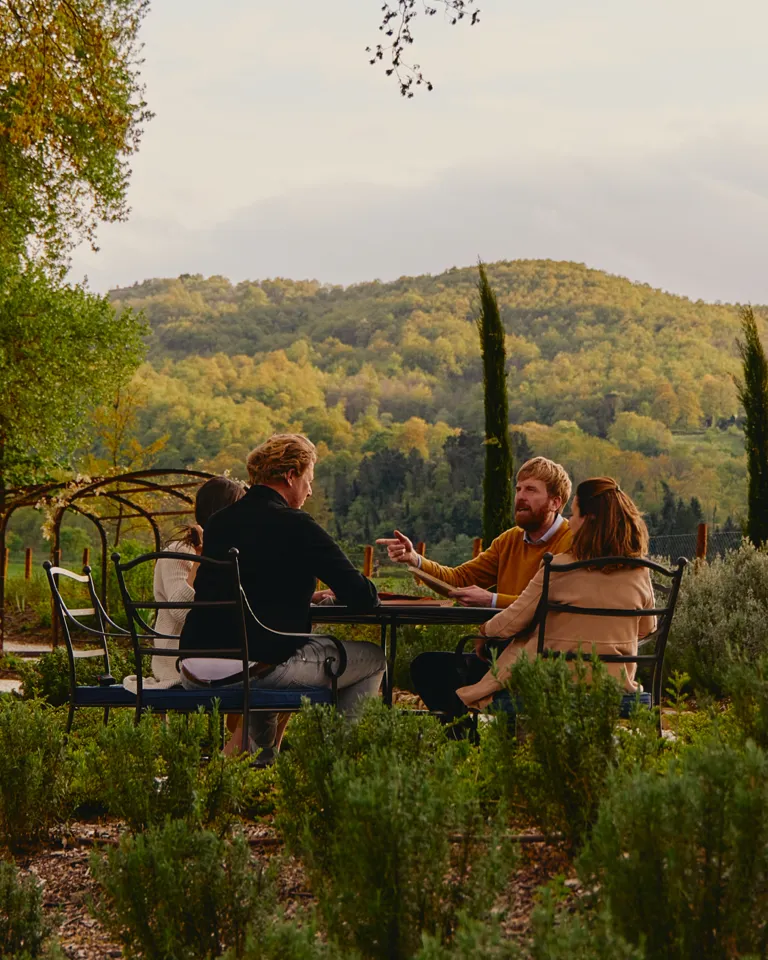
With Jacopo Venerosi Pesciolini and Federica Barni of Architect Archiloop
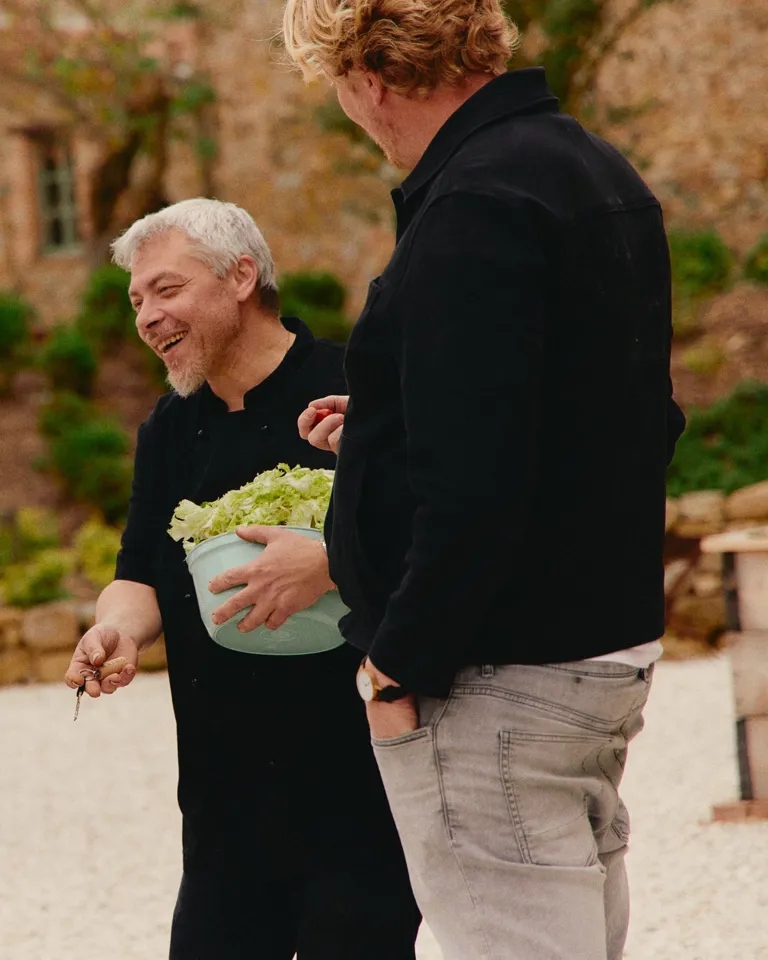
Executive Chef Luca sources local ingredients
Frederik Kubierschky
Friends, neighbors, and local craftsmen often join the hotel's creators for a chat, ending the night with a bonfire in the hotel’s palazzo